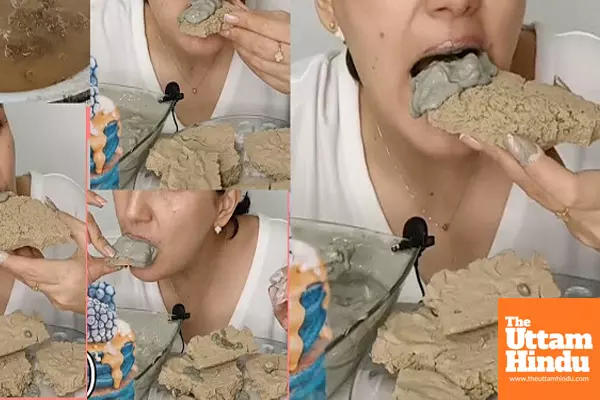
Understanding Slate Pencil Eating Disorder: The Hidden Dangers of Pica

New Delhi (The Uttam Hindu): Slate pencil eating disorder also known as Pica is a condition where individuals have a compulsion to eat non-food items such as slate pencils, clay, chalk, dirt, or even hair. This behavior can be dangerous and is often linked to nutritional deficiencies, particularly a lack of iron or zinc but it can also be caused by psychological factors or stress. In the case of slate pencils the disorder is often seen in children or individuals from certain regions where the practice is more common. While it may seem harmless at first consuming slate pencils regularly can cause serious health issues including gastrointestinal problems, poisoning (from harmful substances in the slate or paint) and damage to teeth. If someone exhibits this behavior, it's important to consult a healthcare professional to determine the underlying cause and provide appropriate treatment. Treatment may involve nutritional supplementation, counseling and behavioral therapy to help manage and prevent the compulsion.
1. Nutritional Intervention:
Addressing Deficiencies: Often, Pica is linked to a deficiency in essential nutrients such as iron, zinc, or calcium. A healthcare professional may recommend dietary changes or supplements to correct these deficiencies. For instance, iron-rich foods (like spinach, red meat, and lentils) or zinc-rich foods (like nuts, seeds, and dairy) may be suggested.
Balanced Diet: Ensuring a well-balanced diet that meets nutritional needs can reduce cravings for non-food items.
2. Medical Consultation:
Professional Diagnosis: If you or someone you know is exhibiting Pica behavior, consulting a doctor or pediatrician is essential. They can determine whether there are underlying medical or psychological issues contributing to the behavior.
Tests and Screening: Doctors may run tests to check for deficiencies in vitamins and minerals or rule out other potential causes like anemia.
3. Psychological Counseling:
Behavioral Therapy: Cognitive Behavioral Therapy (CBT) or other types of therapy may help individuals with Pica especially if the disorder is related to stress, anxiety, or a psychological condition. Therapy can help address compulsive behavior and provide coping mechanisms for managing stress or anxiety.
Psychological Support: If the behavior is linked to emotional or psychological factors, counseling or psychotherapy can help individuals deal with underlying stress or trauma.
4. Creating a Safe Environment:
Avoid Access to Harmful Items: If someone has a compulsion to eat slate pencils or other non-food items, it is important to keep those items out of reach. Offering safe, non-toxic alternatives (like chewing gum or safe chewing toys for children) can help redirect the behavior.
Supervision: Monitoring the person, particularly children, to ensure they aren’t eating non-food objects can help prevent health risks.
5. Support Groups and Education:
Peer Support: Joining support groups or educational sessions on Pica may help individuals and families understand the condition and learn about effective coping strategies. Sharing experiences and strategies with others facing similar challenges can be reassuring.
6. Prevention and Awareness:
Educating Family and Friends: Educating those around the individual about the disorder can help reduce stigma and increase support. Understanding Pica as a medical condition rather than a simple behavioral issue is crucial.

